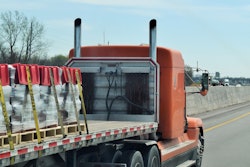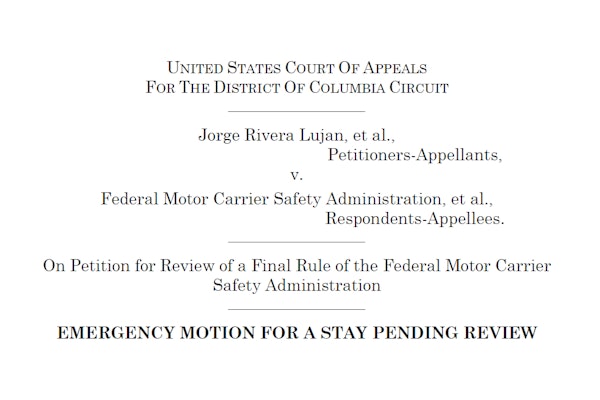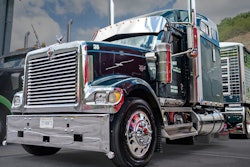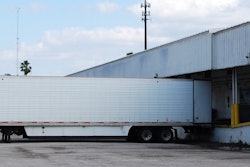The Transportation Research Board (TRB) is conducting a compensation study to examine the effect of compensation on safety, in part. I attended the brief information session the Federal Motor Carrier Safety Administration held at MATS about the study, and my singular question was how they can possibly know or understand how safety is affected by driver compensation unless they have a psychologist and safety officials examining the issue. While they have assembled a very distinguished research panel, I think they are falling short in actual real-life understanding.
A common-sense approach to the subject should consider the long-term decline in truck driver earnings. Way back in 2016, news emerged of an analysis from the National Transportation Institute, well-known for its National Survey of Driver Wages at the time. That analysis showed that annual employee-driver wages averaged $38,618 in 1980. If adjusted to 2015 dollars, that would have been more than $111,000 a year, and well more than that today.
Yet for the average driver, we’re nowhere near that figure. Bureau of Labor Statistics data in 2021 put the average number at less than $50K in annual income. Owner-operators among ATBS clients last year netted just shy of $65K in income, averaged across all segments. Personally, currently in a company truck, I am on track to make about $52K this year, and that’s working 329 days of the year, or taking 36 days off at home -- two days a month and a two-week vacation to attend one of my required residency classes for my post-graduate work.

But that means I am still earning not even half of what I might have expected if operator compensation had kept up with inflation since 1980. And sure, erosion of the buying power of average annual incomes in the United States isn’t just a trucking phenomenon over that same time period, but for operators the erosion is stark.
[Related: The 'extra load' to boost profitability in challenging times]
If the trucking industry wants to increase the labor pool, this must change. When I was doing my undergrad work, many among the younger generation I encountered there considered any work below a $100K annual salary as undesirable. Do we think a profession where earnings are less than half that is going to attract their generation?
Add to that a principal over-the-road downside -- being over the road itself, away from family and friends for so much time, incurring a high cost-of-living expense -- and it’s easy to see why trucking seems to have so much difficulty maintaining production and replenishing the labor force.
Since the Trump-era tax reform, company drivers can no longer claim the $69/day per diem deduction, so either that needs to be returned or companies should be obligated to offer per-diem pay to balance the loss, worth many thousands in a year, as a I wrote about previously. Second, transition to an hourly wage based on experience and safety, and pay drivers overtime when they exceed 40 hours weekly. How do we determine the hourly wage? As I also suggested previously, keep it simple: if a driver is currently paid 50 cents/mile and hauls at an average of 60 mph -- $30/hour for 40 hours a week is $1,200 base pay per week. Anything over 40 hours would be paid at $45/hour – another $1,350 weekly for drivers maximizing use of 70 available hours.
[Related: An argument for an hourly-pay standard for truckers]
If companies kicked in the $69/day as per-diem pay, that would be another $483 weekly for a total $3,033 for a seven-day week.
With my example, minus three weeks off, 49 weeks of that kind of compensation would total up to more than $148K in compensation annually.
I think we should demand this approach. Would it be a painful transition for many companies? Yes, at first, but if adopted across the board it would only become a benefit for the entire industry and country. Higher wages increase tax revenue for the country, and it would force a rate increase for the entire industry. And sure, that would probably fairly quickly filter down to a cost-of-living increase for all of us. But for me, that is the cycle of growth, the trade-off is worth it.
With the rise of rates, owner-operator incomes would also increase, while also offering a more competitive edge -- mega carriers would have greater difficulty undercutting rates and staying in business for long.
[Related: The disconnect between the money and the 'driver shortage' mantra]
How might this impact safety? I tend to agree with my colleagues at CDL Drivers Unlimited, Lee and Lisa Schmitt, on the point that increased amounts of compensation would lead to a decline in stress levels across the board. I believe part of that stress decline is directly related to pay by the hour -- drivers will no longer feel the need to push, and aggressive driving would decrease. That in itself would lessen stress. I am not talking about milking the clock -- I am simply saying drivers will slow down instead of pushing 5 mph or more over the posted speed limit.
With that, you eliminate some of the arguments for a speed-limiter mandate and create a safer environment. Drivers would not feel like they are wasting money in traffic jams and delays at the docks, or resetting hours away from home. Just as ELDs forced some operations to become more efficient, an hourly pay standard would up the ante, with ever more efficiency and better communication, including dock operations.
A new mindset would emerge, and if the wage is based on experience and safety performance, that would be a safer mindset. Taking more time to do proper, thorough pre- and post-trip inspections: safer equipment on the road, too. I have taught and trained for CDL license testing, and a proper pre-trip inspection takes about 30 minutes. Too many operators fly through it in 10 minutes because they do not get paid for their time.
These, of course, are simple observations and conjecture offered by a driver, psychologist and Overdrive contributor. President Kennedy once said, “a rising tide lifts all boats,” and it is time the trucking industry was not so one-sided, with all the wealth being made at the expense of those who not only create the wealth but maintain the national economy.













